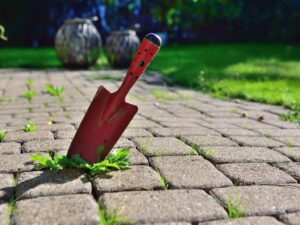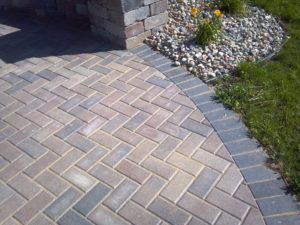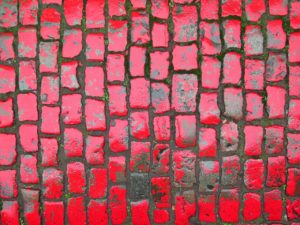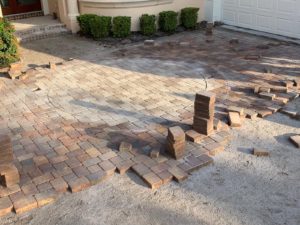When building a pool, you face many decisions, from how deep excavate to what is the best pool deck surface. It may sound simple, but there is a lot of details to think about and choose.
Pool decks have long been made of poured concrete, but this is changing since some issues related to concrete cracking and the complexity of repair are making this a less viable option.
In this article, you’re gonna know everything you need to know about pool decks and how to choose a pool deck surface for your pool.
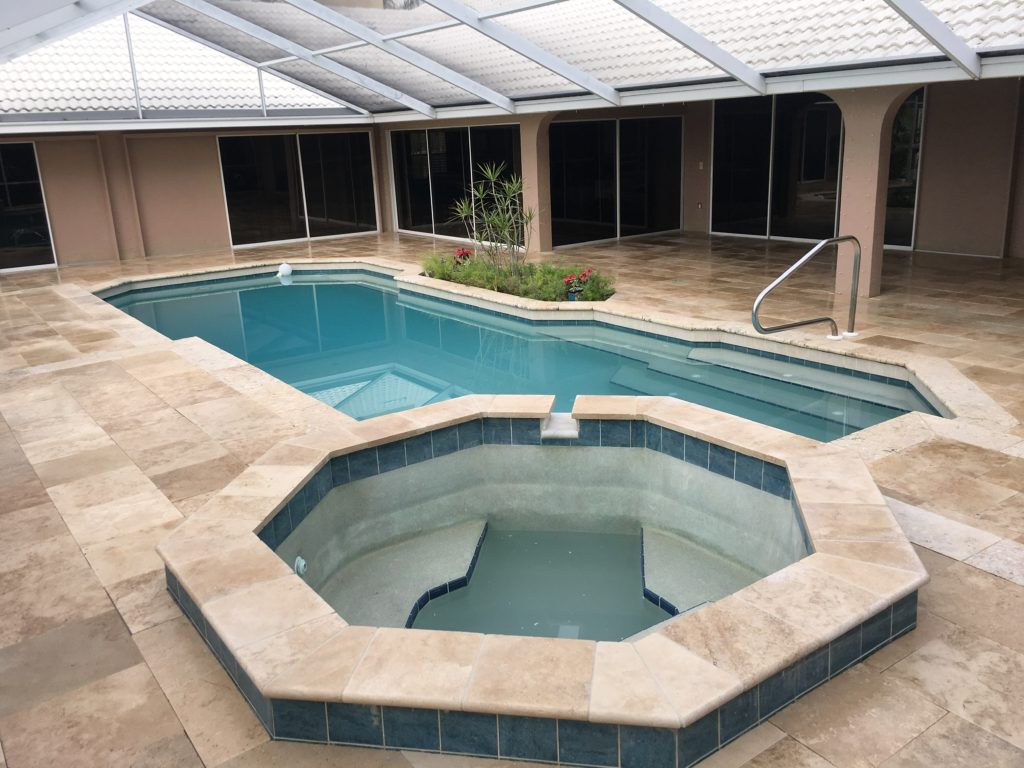
What is the best pool deck surface?
When weighing which is the best pool deck surface, you have to consider factors such as budget, safety, maintenance, durability, and resistance. If you’re interested in creating a nice pool deck and don’t want to worry about maintenance and durability, adding pavers around the pool is the best choice for you.
There are a lot of benefits to choosing pavers for your pool deck. They come in a wide variety of colors, shapes, and sizes, allowing you to create designs that complement your pool’s shape and style.
Another benefit of using pavers for pool decks is that if you spot damage or need to repair electrical or plumbing under the surface, they can be removed and replaced easily.
How to choose the right type of paver?
Luckily, a wide variety of materials is available in the market to choose from. Each type of paver has different benefits and functions. The best pool paver materials are travertine, marble, limestone, and concrete pavers and we are gonna break the reasons down one by one.
Travertine
Travertine is a natural sediment-formed material largely made up of calcite, a naturally soft material and the go-to choice of many people when it comes to covering pool decks.
This type of paver is really popular due to its heat resisting ability, slip-resistance, low-maintenance, and looks. When used outdoors, the material’s pores help absorb water, keeping the deck’s surface or patio dryer on rainy days.
Marble
Marble is very similar to travertine, although they are more expensive and are not as good as travertine when it comes to releasing heat. But, those can be found in really light shades that will reflect most of the sunlight.
Using these marble pavers gives your pool deck and other exterior areas a unique appeal.
Limestone
Limestone is a natural stone that has hardened over more extreme pressure and heat. Like marble, its performance is also similar to travertine.
Concrete
Concrete pavers are made to look like other materials and come pretty handy for people who don’t want to spend so much on covering the pool area. Concrete pavers are highly more recommended than bricks for pools, mostly because they absorb less heat and are cheaper.
Another advantage of using concrete pavers is the variability of shapes, colors, sizes, and textures.
What about heat?
Unfortunately, under the constant sunlight, it’s inevitable, all pavers will get hot, but some of them get unbearably hot, and some pavers will remain colder and more comfortable to walk on.
Solar Reflectance Index (SRI) is a measure that is used to calculate surface temperature, and it’s calculated using two values: Solar Reflectance, which is the percentage of the total solar energy that is reflected away from a surface, and Thermal Emittance, which is the measure of a paver’s ability to release heat that it has absorbed. It’s not a surprise that color plays a huge role when choosing pavers, darker colors absorb more heat.
The material of choice will influence the Thermal Emittance. Some paver materials after absorbing sunlight can dissipate the heat better. Travertine is a good example of a material that can excise the absorbed heat better.
What About Slip Resistance?
Looking for a surface that’s textured and slip-resistant can be a little tricky.
Certain types of pool deck materials will get slippery more easily, like marble or smooth concrete. Still, slip resistance has to do with the finishing of the material rather than the paver itself.
If you want to make sure that your deck will be less slippery, avoid polished finishes and avoid glossy sealers too. Or try to choose a material with a little more texture (but not too much, not to scrape your feet).
Get a Free Estimate!
Want the best pool deck surface but have no idea how to choose or how much your pool deck project is gonna cost? What about a free estimate? If you live in Sarasota, Manatee, or any of our surrounding counties contact us! We will be glad to assist.
S&S Pavers has over 10 years of experience serving the counties of Manatee and Sarasota.

